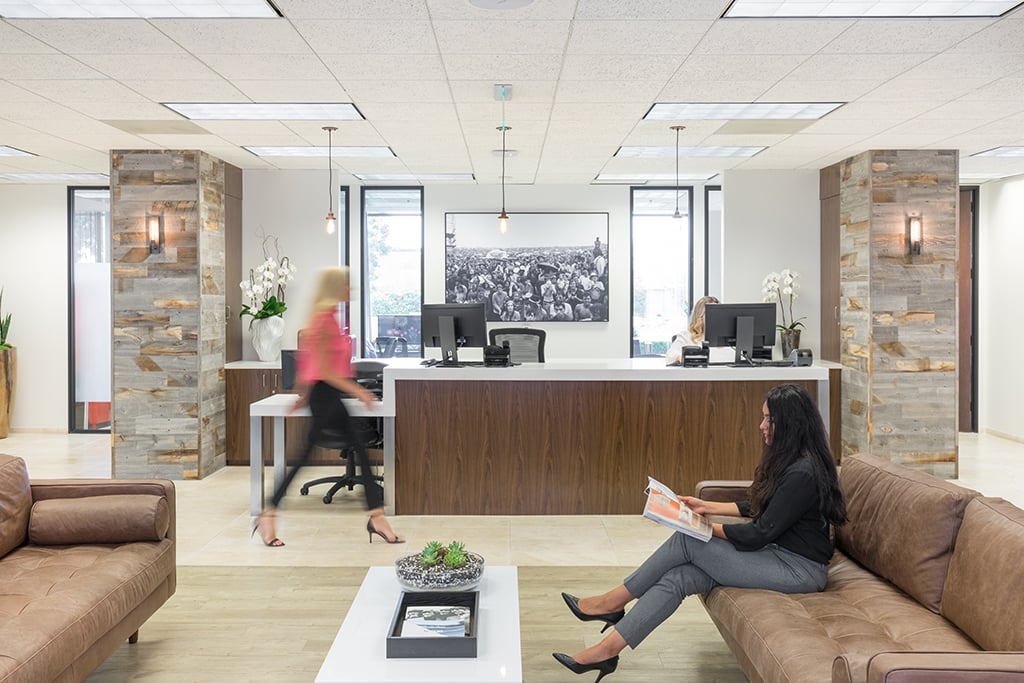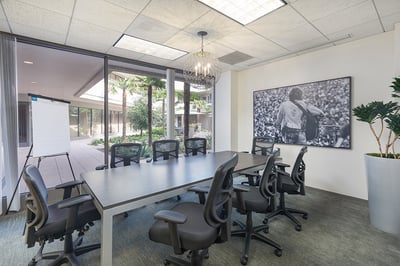- Book a Space
- Locations
- California
- Aliso Viejo
- Anaheim Hills
- Beverly Hills
- Burbank
- Calabasas
- Carlsbad
- Century City
- Cerritos
- Concord
- Culver City
- El Segundo
- Foothill Ranch
- Huntington Beach
- Irvine
- Irvine Spectrum
- Long Beach
- Los Angeles - Brentwood
- Los Angeles - Downtown
- Los Angeles - West Los Angeles
- Los Angeles - Westwood
- Manhattan Beach
- Mission Viejo
- Newport Beach
- Oakland
- Orange
- Panorama City
- Pasadena
- Rancho Cucamonga
- Rancho Santa Margarita
- San Diego - Del Mar
- San Diego - Downtown
- San Diego - La Jolla
- San Diego - Mission Valley
- San Diego - Rancho Bernardo
- San Francisco
- San Jose
- Santa Monica
- Sherman Oaks
- Temecula
- Torrance
- Westlake Village
- Woodland Hills
- Arizona
- Hawaii
- Illinois
- Nevada
- New Jersey
- New York
- North Carolina
- Ohio
- Texas
- Washington
- Washington DC
- California
- Workspaces
- About
- Contact Us
- Client Login

Is Your Office Mental-Health Friendly?
A lot of time and effort is devoted to improving the ergonomics of workspaces, and rightly so. Workers’ physical health and well-being is important. But what about their mental health? Isn’t it also important that office space be mental-health friendly?
Perhaps not surprisingly, when you search for information about mentally healthy offices, most of the results come from other countries. The Psychiatry & Behavioral Health Learning Network conducted a poll that revealed a majority of Americans believe mental health is not a priority to policymakers. At least 45 percent of respondents said they didn’t even know how to access mental health services.
Employers can help with employees’ mental health by providing adequate health insurance that covers mental health services. Another tool companies can use is employee assistance programs, which help workers on a short-term basis with a wide variety of problems, including, according to the U.S. Office of Personnel Management, “substance abuse, stress, grief, family problems, and psychological disorders.”
What about if you are a small-business owner and you have no employer? What do you need to make your office space more supportive of your mental health?
Good Lighting
One important aspect of your office space — or any space in which you spend any significant amount of time — is the lighting. Natural light — that is, daylight or sunlight — is best. But if this isn’t an option, then good artificial light is a must.
The Canadian Centre for Occupational Health and Safety says, “proper lighting makes all work tasks easier.” Further, people receive 85 percent of their information through sight, so if workers can’t see clearly, they’re missing some vital information.
When you’re aware that lighting is inadequate, you may struggle to compensate by squinting or straining, which can cause headaches, problems concentrating, and fatigue. These, in turn, can lead to trouble sleeping or eating, and eventually, mental health issues.
Fusion Tech, an Australia-based technology company, warns against having too much light as well. Glare from the sun can cause the same types of issues. Additionally, too much light on a computer screen can be problematic. They recommend you not place your computer directly under a light source, to avoid having the screen facing the windows, and to use an anti-glare filter.
2. Quiet Space
Your mental health also takes a hit in noisy environments. A Cornell University study says that noise is the most common complaint in workplaces. Inability to concentrate leads to stress, which causes increases in memory loss and decreases in motivation.
The advent of the “open-office” concept only adds to the problem. Having a quiet workspace to retreat to can help. Researchers say other helpful solutions include adding carpeting and plants, which do double duty by providing oxygen and beautifying surroundings. An article in The Guardian says plants “increase happiness and productivity.”
 3. Privacy
3. Privacy
A Journal of Environmental Psychology study found that working in an open office can lead to emotional exhaustion. The lack of privacy and the feeling of constantly being exposed and observed can lead to persistent anxiety.
Having your own office to retreat to can relieve these feelings. According to an article in Men’s Health, personalizing your space with items you bring in from home, including pictures of family, friends or pets, can help your space feel more like yours, and thus less like you are working in a fishbowl.
Annually, May is Mental Health Month. A good way to mark this important occasion every year is to take stock of your office space and see what you can do to improve your surroundings. You spend more (awake) time in the office than you do anywhere else, so if your office makes you anxious or depressed, it’s important to take action.
If you’re working from home, you may fight feelings of isolation. If you’re working in a crowded internet café, you might feel cramped and have trouble focusing.
The solution to either is your own private office space. With your own office, you get the solitude you need to work, but you also have the benefit of colleagues to interact with in common areas such as the kitchen, break room, and lobby.
To learn more about renting temporary or shared office space, contact Premier Workspaces today. We have the office space you need to support your mental and physical health.

